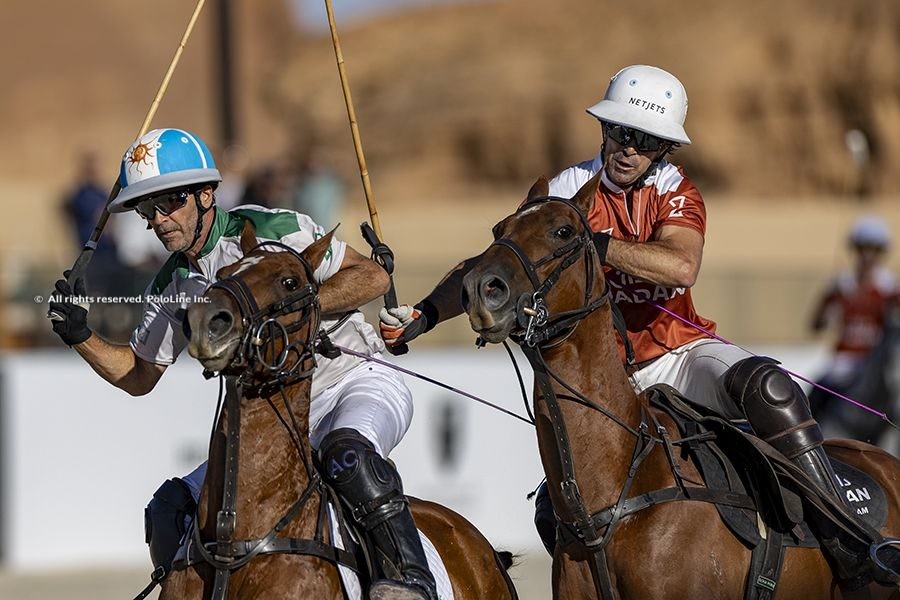By Alejandra Ocampo
What else can be said about Adolfo Cambiaso that has not been said yet? With an extraordinary career behind, Adolfo Cambiaso has left a remarkable mark in polo through his legacy, his significance as a sportsman as a whole on a global level, and one of Argentina’s best ambassadors. But still, believe it or not, there was something left – a documentary to focus and strengthen even more his countless achievements, the story of a man who is much more than a polo player.
Under the direction of one of the most prestigious movie makers in Argentina and Oscar-winner, Juan José Campanella, “Adolfo Cambiaso, In the Name Of Polo”, has become a worldwide success. The three-episode series navigates navigates deep down through the life and the career of the world’s best polo player, a a simple man from Cañuelas, who won everything every sportsman can dream of. At 50, is a living legend, who has broken record after record; a revolutionary not only as a player but also as a horse breeder, who stills shines on the polo grounds with his kids, Poroto and Mia. Moreover, with the former, he claimed no less than the most important polo tournament worldwide, the Argentine Polo Open Championship.
Nacho Figueras was summoned to be a part of this project, something he considers, “an honour to be able to provide my grain of sand”. PoloLine spoke to Nacho about the series and his impressions about it.
What can you say about Adolfo Cambiaso’s series “In The Name Of Polo”?
It’s is a remarkable series, extremely well done and produced. But the most important thing is that the series tells a story that’s worth to know. Adolfo is not only the best polo player ever, but also someone who changed the sport. That’s what the series displays – from his beginnings in Cañuelas to his path to global stardom. And it’s done with passion and a very human sight. I love Lolo’s part, as well, he is always so unique.
Polo is not one of those so-called “popular sports”. So, in your opinion, do you think the series can be able to approach new people to polo?
Yes, absolutely. This is the kind of content polo needs to attract new audiences. And on that matter, Cambiaso’s story has everything to approach people to polo – skills, sacrifice, hard work, rivalry, family, legacy. It is a real and powerful story told as in a movie. You don’t have to understand the rules of polo to get touched with what you see. I think people are going will discover the sport thanks to the series, and that’s very positive.
What did mean to you to be called and give your view in the series?
To tell you the truth, it’s been an honour to me to provide my grain of sand. Although neither had a big part nor spoke about Cambiaso that much, I was able to speak about what’s polo about, and how the world of polo works. I thought it is very valuable that the series don’t focuses only on Cambiaso , it also showcases everything that moves around polo,
In your opinion, what’s makes Cambiaso the best, as a player and a human being?
I think the best he has is his obsession to overcome himself, his capacity to evolve. As a player, he changed the way to play polo. As a horsebreeder, he made a revolution in terms of genetics and the way to prepare a polo horse. As a human being, today he puts family in first place, and he is building a legacy with his son, Poroto. His ability to reinvent himself is amazing.
What’s the part of the series you liked the most, that one you would rewatch over and over again?
There are several parts, but if I have to choose one, I will go for those that show the relationship between Adolfo and his son, Poroto. That generational bond, the desire to win Palermo together, the mix between sport and affection. Because beyond the high level of competition, this is a story between a father and a son, the legacy and the love of polo.
The relationship with his daughters is a very valuable part, too, and it involves his support for ladies polo, something that it’s not symbolic for him, but a strong committment. And the role of María (NR: María Vázquez, Adolfo Cambiaso’s wife). She is a crucial part of the family, always there, and being supportive. That’s something very important, although done in silence. Women are very important in a polo player’s life.
After this unprecedent series, what does Adolfo Cambiaso mean yesterday, today and in the future, not only in polo but sport as a whole?
Yesterday, he was a revolutionary. Today is a symbol. And in the future, I see him as a bridge between generations, between traditional polo and the one that’s coming up; a bridge between the the world of sport and new audiences. What he did and he is still doing is far beyond polo. And the series makes it very clear, indeed.
And perhaps the most exciting thing is that this is not an end, but the start of a new stage. There are ideas on the move, ideas that will surprise many people. Having Adolfo still dreaming again is a sign that the best is still yet to come.



